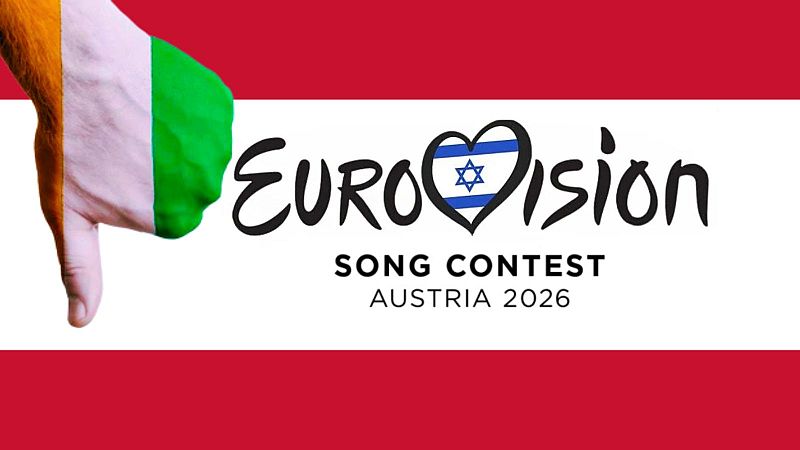'Unconscionable': Ireland to boycott Eurovision 2026 if Israel participates

Ireland have announced that they will boycott Eurovision 2026 “if the participation of Israel goes ahead”.
Irish broadcaster RTÉ released a statement saying that at the General Assembly of the European Broadcasting Union (EBU), the organizers of the Eurovision Song Contest, in July, “a number of EBU members raised concerns about the participation of Israel in the Eurovision Song Contest”.
The statement read: “It is RTÉ’s position that Ireland will not take part in the 2026 Eurovision Song Contest, if the participation of Israel goes ahead, and the final decision regarding Ireland’s participation will be made once the EBU’s decision is made”.
The broadcaster added: “RTÉ feels that Ireland’s participation would be unconscionable given the ongoing and appalling loss of lives in Gaza. RTÉ is also deeply concerned by the targeted killing of journalists in Gaza, the denial of access to international journalists to the territory, and the plight of the remaining hostages.”
This follows comments made by Spanish Culture Minister Ernest Urtasun regarding Spain’s participation in Eurovision next year.
Earlier this week, Euronews Culture reported that Spain also threatened to withdraw from the contest if Israel is kept on the line-up. “I don’t think we can normalise Israel’s participation in international events as if nothing is happening,” said Urtasun during an interview on La hora de La 1 on TVE. “It is not an individual artist who participates but someone who participates on behalf of that country’s citizens.”
Urtasun said that if Israel participated in 2026 “and we fail to expel it, measures will have to be taken” - as cited by the Spanish daily newspaper La Vanguardia - and reminded viewers that Spanish Prime Minister Pedro Sánchez previously called on EBU to ban Israel from the international competition.
In May, Sánchez called on the EBU to exclude Israel, saying that "no one was shaking their heads" when Russia was banned from international competitions and Eurovision after its invasion of Ukraine. He called for the same ban to be applied to Israel over the Gaza war.
Urtasun specified that it is not antisemitic to denounce the “genocide” taking place in Gaza and described Israel as a “genocidal government.”
These statements by Ireland and Spain, as well as growing public protests, show quite to what extent Eurovision is facing a huge crisis.
The contest has been caught up in political tensions over Israel’s participation for two years now, and the director of Slovenia’s national broadcaster, RTVSLO, has already announced that it will likely withdraw from the contest next year if Israel participates.
Indeed, Ksenija Horvat recently said that RTVE had reached out to EBU several times with concerns regarding Israel’s participation in next year’s competition.
RTVSLO called for the expulsion of Israel from Eurovision 2025, joining more than 70 former Eurovision contestants signing an open letter demanding Israel and its national broadcaster KAN be banned from the contest.
The winner of last year’s Eurovision, Austrian singer JJ, has said that he too wants Israel to be banned from the Eurovision 2026.
The EBU has extended its penalty-free withdrawal deadline to December, when a final decision on Israel’s participation is expected at the General Assembly.
Since Hamas’ attack on Israeli citizens on October 7, 2023, multiple UN human rights experts have stated that Israel’s military actions in Gaza amount to genocide, with the International Court of Justice finding claims of genocide plausible.
Last month, the Integrated Food Security Phase Classification announced that people in the Gaza Strip are officially facing “a man-made” famine in the territory – despite what the Israeli government has said.
The 70th anniversary edition of Eurovision is due to take place in Vienna, Austria.The finale will take place on 16 May after the semi-finals on 12 and 14 May 2026.
Today

